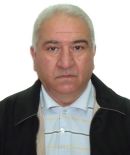|
Plenary
Lecture
Numerical Simulation of Some Ecological Problems of Georgia for Risk Assessment

Professor Teimuraz Davitashvili
I.Vekua Institute of Applied Mathematics of Tbilisi State University
2 University
St.
0143, Tbilisi
&
Georgian Hydro-meteorological Institute
David Agmashenebeli Aven. 150a
0112, Tbilisi
GEORGIA
E-mail:
temuri.davitashvili@viam.sci.tsu.ge
Abstract: The Transport Corridor Europe-Caucasus-Asia (TRACECA) using railways, highways and oil-gas-pipelines, is conveyed oil, gas, coal and cotton, across Georgia from central Asia and Azerbaijan to other countries. At Present there are already functioning six main oil and gas transportation lines on the territory of Georgia. According to the experience of transit countries the convey of oil and gas by railway and pipelines causes great losses regarding the ecological situation thus counteracting the intended political and economical benefits. In addition to ordinary pollution of the environment it is possible that non-ordinary situations like pipeline and railway accidents arise. As foreign experience with pipelines shows, the main reasons of crashes and spillages are the destruction of pipes as a result of corrosion, defects of welding and natural phenomena (floods, landslides, earthquakes et. c). Also terrorist attacks and sabotage may occur.
It is obvious that safety of the neighbourhood of oil and gas pipelines is an urgent problem for many countries and for the Caucasus. The TRACECA routes crosses a multitude of surface water flows. Ground water along the route is also abundant and generally of high quality. In Georgia there are frequent cases, when flooded river undermines the bridges, bases and sometimes even take away the bridges. So eventually it can happen the erosion of the soil, decreasing to the minimum of the protective layer of the soil, damaging of the protective coverage of the pipeline by the broken stones brought by the flooded river, and leakage of the oil. In addition, if we take into account, that Georgia is placed in the seismically active zone, it increases the possibility of getting of the spilled oil on soil, surface and under-surface waters and in the rivers. As oil transportation by TRACECA and pipelines goes through the densely populated areas, so for solving the problem of protecting the population and the environment the important subject is the prognosis and modeling of possible emergency situations. So with the help of numerical integration of nonlinear filtration equation of a liquid, we have studied a penetration of oil into the rivers ,soils underground water in case of their emergency spilling.
In the present work we have investigated the hydrological specifications of Georgian rivers. By Numerical model we have calculated Georgian the largest rivers Mtkvari’s and Rioni’s possible pollution by oil in the period of flooding. With the purpose of to study under ground water pollution by oil, oil penetration into soil with flat surface containing pits and slopping surface are studied by numerical modeling. Some analytical and numerical solutions of the diffusion and filtration equations are given and analyzed. Results of numerical calculations of oil propagation in soil under high pressure and possible under-surface water pollution earthquake dangerous regions of Georgia also are presented.
The problem of the forthcoming climate change resulting from natural and growing anthropogenic factors acquires a particular importance for Georgia. Georgia’s climate oscillates from subtropical conditions on the Black Sea coast to continental conditions, with cold winters and hot summers, in the extreme east, with dry lands. The result of such a diversity of Georgian climate is that the statistical processing of the data of mean climatic temperature of the last ninety years exposed the regularity of the climate cooling in the West Georgia and warming in the East Georgia. There were also elicited those micro-regions where mean climatic temperature does not change in time.
In the present paper the specific properties of regional climate cooling process in the Western Georgia is studied by mathematical modelling. The effect of thermal and advective-dynamic factors of atmosphere upon the changes of the West Georgian climate is investigated. The specific peculiarities of the thermodynamic model of desertification process are discussed. Some recommendations for halting the desertification process and restoration of soil active layer are given.
Brief Biography of the Speaker:
Teimuraz Davitashvili, born in 1949, graduated from Tbilisi State University (TSU) in 1972, receiving the 5 years Diploma in Mathematics, specialization Hydro-air Mechanics. In 1985 he received the Ph.D and in 1997 the Doctor of Physics and Mathematics upon the doctorol thesis „ Numerical Modelling of Some Problems of Atmosphere Physics for Mountain Regions“. Since 1972 researcher, senior researcher, head of department, head of laboratory „Mathematical Modelling and Numerical Analyses“ at I.Vekua Institute of Applied Mathematics of TSU. 1994-1998 Assoc.Prof. of TSU, 1999-2006 Full Prof. of TSU. Since 2006 head of department „Weather Forecast , Modelling of Natural and Teqnogen.Catastrophic Events“ at the Hydrometeorological Institute of Georgia. He published 1 book, more then 100 research papers in various scientific journals and international conference proceedings. His general research interests are: applied mathematics, numerical modelling, environmental pollution, numerical methods of weather forecast.
|